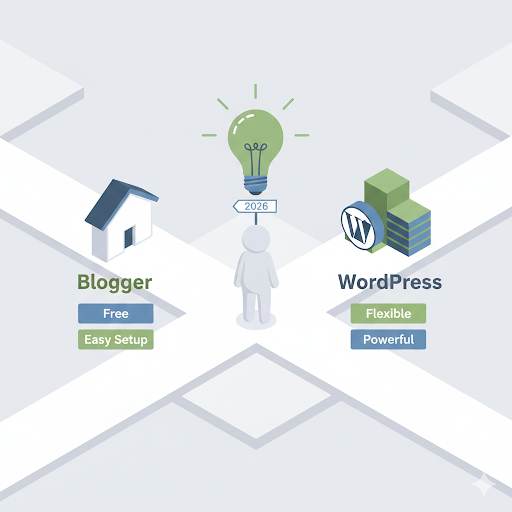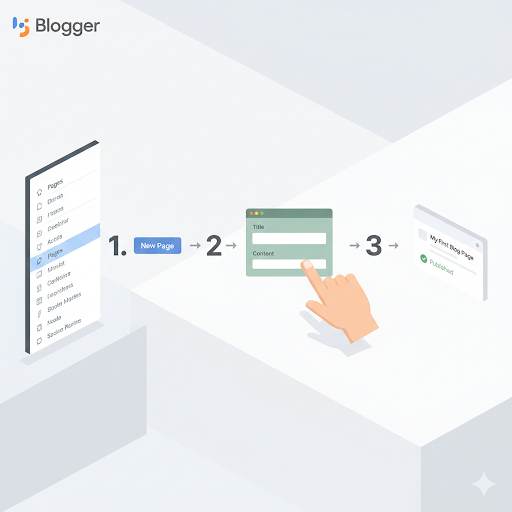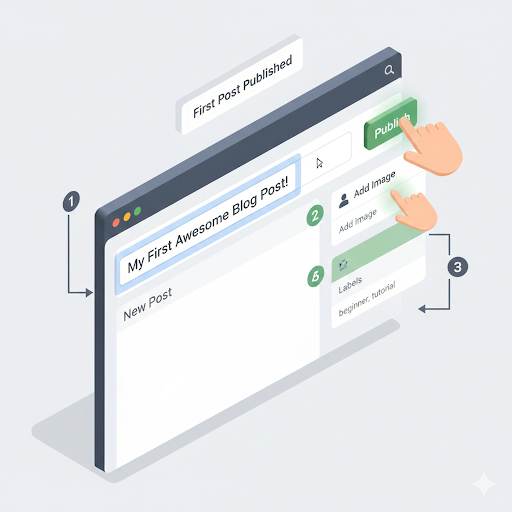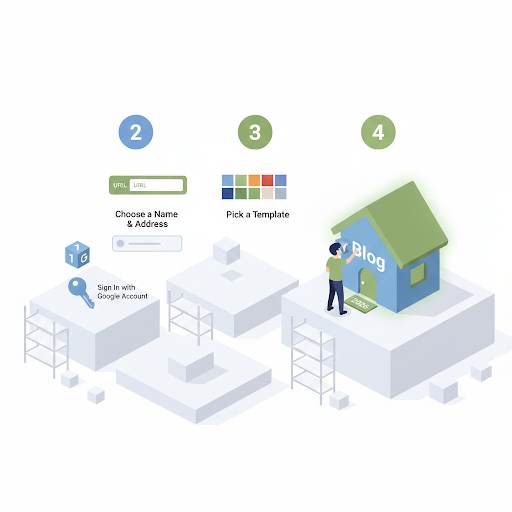If you’re starting a blog in 2026 and wondering whether to use WordPress or Blogger, you’re not alone.
This is one of the most common questions beginners ask.
And honestly? It’s a good question—because the platform you choose will shape your blogging journey from day one.
I’ve worked with both, and in this guide, I’ll help you understand the real differences between WordPress and Blogger so you can choose what fits your goals, not just what’s “popular.”
Let’s break it down together.
What Are WordPress and Blogger?
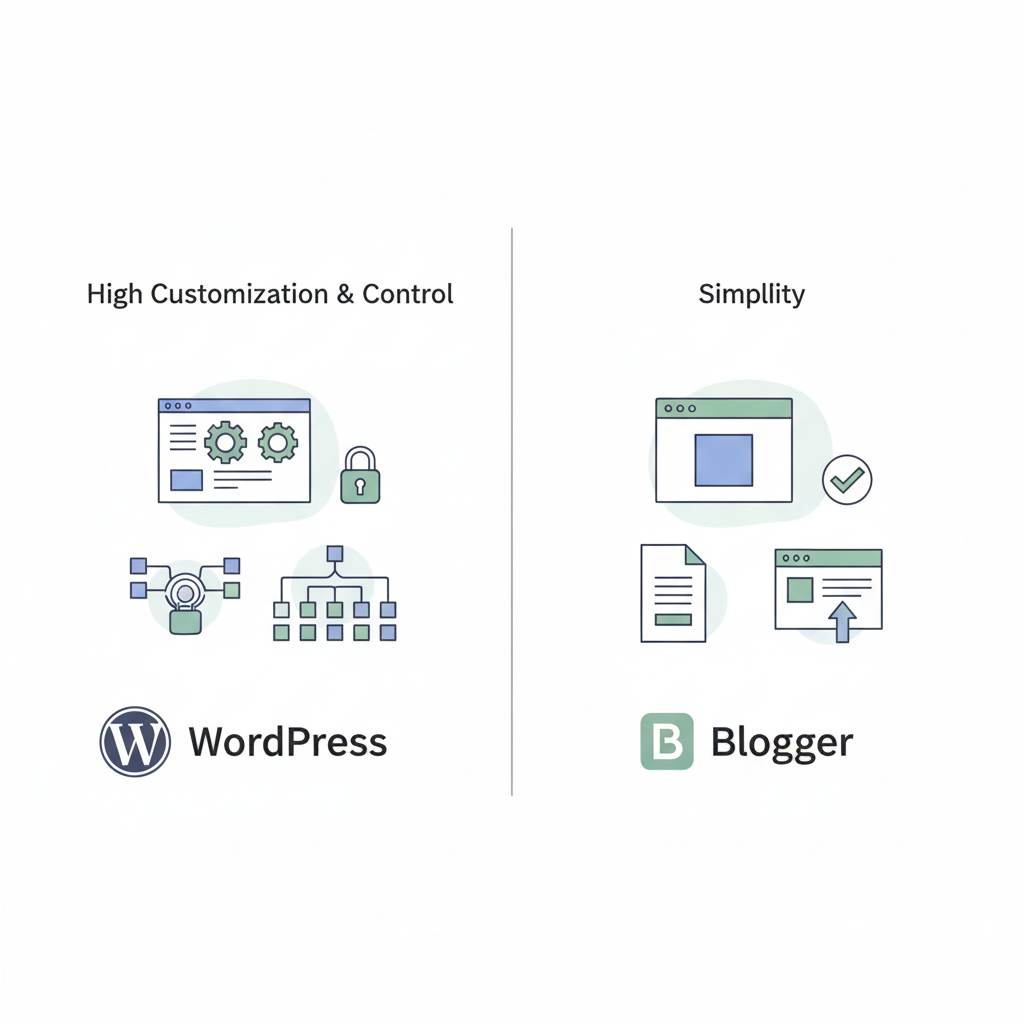
WordPress and Blogger are both blogging platforms—but they’re very different under the hood.
Blogger is a free platform owned by Google. It’s simple, fast to set up, and perfect for absolute beginners.
WordPress, on the other hand, is open-source software you install on your own hosting.
It gives you full control and flexibility—but requires more responsibility.
Think of it this way:
- Blogger is like renting an apartment.
- WordPress is like owning your house.
Why Your Platform Choice Matters
Your blog isn’t just a hobby.
If you’re planning to grow it, monetize it, or build a brand—it needs a solid foundation.
That foundation starts with your platform.
Want full control over your design and features? You’ll probably need WordPress.
Want something simple to write and publish without tech stress?
Blogger is the easier door to open.
But there’s more to the story.
WordPress: The Pros and Cons
✅ Pros:
- Complete control: You can change anything, add features, or customize your site endlessly.
- Thousands of plugins: Add SEO tools, email forms, e-commerce, and more with one click.
- Endless themes: Free and paid templates for any niche.
- Professional-level SEO: Great for long-term growth.
❌ Cons:
- You need to pay for hosting and a domain.
- A bit of a learning curve if you’ve never blogged before.
- You’re responsible for security, backups, and updates.
Blogger: The Pros and Cons
✅ Pros:
- Super easy to set up—just sign in with Google and go.
- Fast and secure (hosted by Google).
- Great for beginners or casual blogging.
❌ Cons:
- Limited customization compared to WordPress.
- Fewer themes and features.
- Harder to scale if you want to grow big.
- Google owns your content technically, since you’re on their platform.
Which Is Better for Monetization?

If your goal is to make money blogging, WordPress usually wins.
You can:
- Install affiliate marketing plugins
- Run advanced AdSense setups
- Build email lists and sales funnels.
Blogger does support basic monetization (like AdSense), but you’ll hit limits fast when trying to grow beyond that.
What About SEO?
Both platforms can rank well in Google—but WordPress gives you more SEO tools and freedom.
With plugins like Yoast SEO or RankMath, you get advanced on-page guidance, meta tag control, and schema options.
Blogger is solid for basic SEO, but you won’t have the same fine-tuning power.
Beginner-Friendly Comparison
Let’s keep it real:
Start simple with Blogger if you’re blogging for fun or testing ideas.
Start strong with WordPress if you’re serious about growing traffic, making money, or building a business.
No wrong choice—just different roads depending on your goals.
Can I Switch Platforms Later?
Yes, you can.
Many bloggers start on Blogger, then move to WordPress as they grow.
But migrating can be tricky and affect your SEO if not done right.
That’s why, if you’re aiming big, it’s usually better to start with WordPress from day one—even if there’s a small learning curve.
Common Beginner Mistakes (And How to Avoid Them)
- Picking a platform just because it’s free.
- Ignoring long-term goals (you may outgrow Blogger fast).
- Skipping SEO and hoping traffic will come magically.
- Not buying a custom domain.
(Tip: Do this no matter the platform—it makes you look professional.)
Final Verdict: Blogger or WordPress?
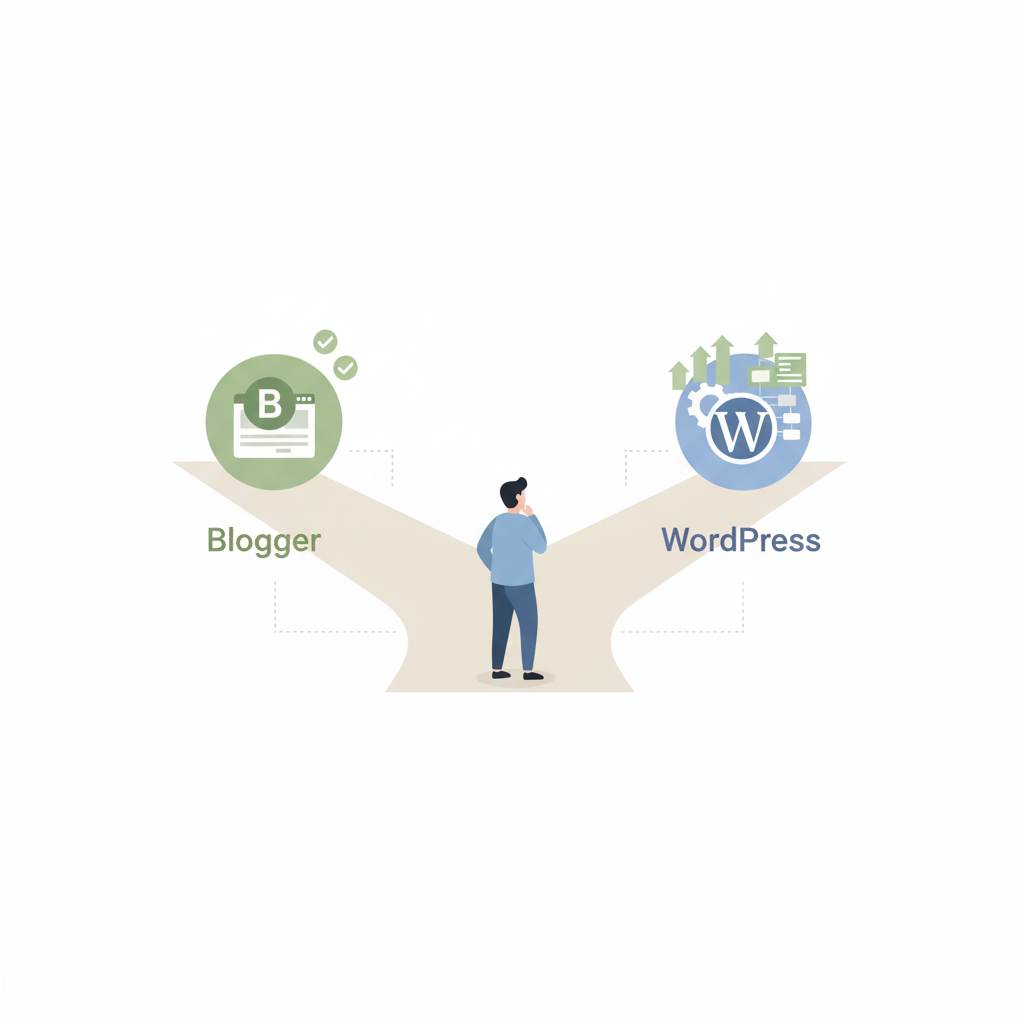
Choose Blogger if you want:
- A free, simple place to write and publish.
- Just to blog casually or test an idea.
Choose WordPress if you want:
- Full control and customization.
- A professional blog that can grow and scale.
- Better tools for SEO, email marketing, and monetization.
My Advice to You
Start with your vision.
Ask yourself:
> Do I want to build a brand, earn money, or blog professionally?
If you just want a writing space to get started—Blogger can work.
But whatever you do: start.
Don’t let platform paralysis stop you from sharing your voice with the world.
Your Next Step
If you’re going with Blogger, I already wrote a full step-by-step guides here:
👉 What Are Blog Categories? The 2026 Beginner’s Guide to Smarter Blog Organization
👉 Categories in Blogger: How to Organize Your Blog Like a Pro in 2026
And if you’re ready to go deeper into SEO or monetization, stick around — more beginner-friendly tutorials are coming.
Let me ask you — which platform are you leaning toward?
Drop your answer in the comments or email me directly.
And if you found this post helpful, don’t forget to share it with someone starting their blog today.
Your blogging journey starts with one decision.
Make it wisely — and then go build something amazing. 🚀
